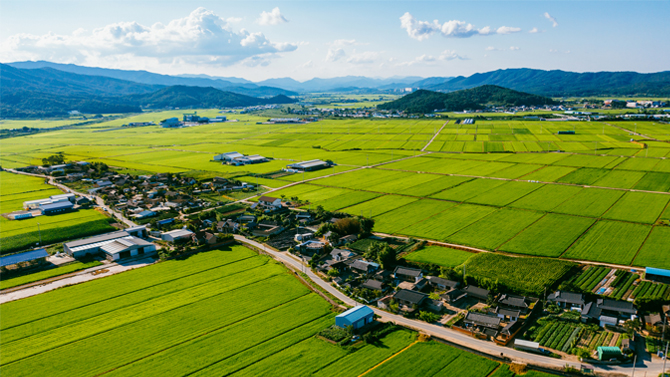Social Issues addressed by Sumitomo —Compass for the Future—
Continuously supporting the client’s business activities through comprehensive evaluation and analysis of both the positive and negative environmental, social, and economic impacts
 Decarbonization
Decarbonization Supply
chain
Supply
chainThe environment in which companies pursue ESG initiatives has been evolving. In 2006 the United Nations formulated the Principles for Responsible Investment (PRI), a framework for institutional investors’ inclusion of ESG issues in their investment decision-making processes, which triggered creation of a huge ESG market. The approach initially adopted was to make investment decisions based on analysis of economic risks and returns. Then, in 2007, the Rockefeller Foundation introduced the term “impact investing,” which refers to investment with the intention of generating social or environmental benefits alongside a financial return. Impact investing emphasizes the social or environmental impact of the business activities of investees, i.e., the impact in addition to the conventional criteria of risk and return.
In 2017, the United Nations Environment Programme Finance Initiative (UNEP FI) formulated the Principles for Positive Impact Finance, and 2019 saw the launch of the Principles for Responsible Banking (PRB) advocated by UNEP FI. Determined to benefit society through its core business of financing, Sumitomo Mitsu Trust Bank has been involved in PRB since its launch and in March 2019 became the first financial institution in the world to offer Positive Impact Finance (PIF) solutions.

PIF loans continuously support a borrower and involve comprehensive evaluation and analysis of both the positive and negative environmental, social, and economic impacts of the borrower’s business activities. The borrower’s entire business flow is subject to evaluation, including supply chains and product life cycles, to identify the positive and/or negative impacts of each process. Based on the evaluation, key performance indicators (KPIs) are set to maximize positive impacts and minimize negative impacts, and the KPIs are monitored. The objective of PIF is to support the enhancement of the borrower’s corporate value and, with that in mind, encouraging the borrower to contribute to the achievement of the Sustainable Development Goals (SDGs) is an aspect of PIF.
Sumitomo Mitsui Trust Bank has engaged in 17 PIF initiatives so far. Let’s take a look at some examples.
Among the attractions of PIF for Sumitomo Rubber Industries was its utility as a means of identifying which CO2 emission reduction measures should be prioritized from the viewpoint of resource allocation in order to maximize the impact. In the case of tires, which are the company’s mainstay products, evaluation and analysis revealed that CO2 emissions during driving account for 80-90% of the entire CO2 emissions throughout the life cycle of tires. Accordingly, in order to reduce lifecycle CO2 emissions per tire, the progress rate of initiatives for development of fuel-efficient tires has been set as a KPI and actual reduction impacts are being monitored.

Sumitomo Metal Mining aspires to be a “world leader in the non-ferrous metals industry” by leveraging the competitive advantage inherent in its unique business model integrating its three businesses of mineral resources, smelting & refining, and materials. With a view to attaining this goal, the company formulated the Vision for 2030 in which 11 material issues are identified. These issues are classified into six impact items for PIF. Of these, Sumitomo Mitsui Trust Bank is paying particular attention to materials for batteries for electric vehicles (EVs), since such materials are destined to be of crucial importance given the global trend toward decarbonization, and set KPIs for the securing of supplies of nickel and recycling technology for automotive batteries, as progress on these fronts will encourage the take-up of EVs.

The Sumitomo Forestry Group’s GHG emissions are of the order of 10 million tons of CO2 equivalent per year. In fiscal 2018, Scope 3 (GHG emissions in the supply chain) accounted for the bulk of the Group’s GHG emissions, 96.3%, with emissions from the use of detached houses sold accounted for 64.6% of that. Sumitomo Mitsui Trust Bank concluded that the reduction of GHG emissions of Category 11 (use of sold products) in Scope 3 would have a great impact in terms of global warming countermeasures and set Sumitomo Forestry’s science-based target*, namely, “A 16% reduction in the total amount of emissions from purchased goods and services (Category 1) and the use of sold products (Category 11) in Scope 3 by 2030 compared to 2017,” as the PIF target. KPIs include the progress in promotion of Net Zero Energy House (ZEH) specifications, the order rate for environmentally friendly renovation, carbon stock in wooden architecture in Japan, and the order rate for environmentally friendly products in the environmental and greening business.

Some of the initiatives involve evaluation of positive social impacts attributable to a company. Sumitomo Dainippon Pharma has set KPIs for development of innovative products in its three focus research areas (psychiatry & neurology, oncology, and regenerative medicine/cell therapy), progress of projects, new drug usage, etc. The company is according particular emphasis to psychiatry & neurology and oncology since these specialties account for a large and growing number of patients worldwide. Any advances facilitating the prompt social reintegration of patients would have tremendously positive social and economic impacts.

Amid companies’ deepening engagement with the SDGs and ESG, Sumitomo Mitsui Trust Bank aims through PFI to support clients in their efforts to enhance corporate value while, at the same time, hastening the emergence of a sustainable society. Mindful of its responsibilities as one of the largest trust banks in Asia, the Bank was early to cultivate ESG-conscious business in order to realize capital circulation beneficial to society. For example, the Bank established the first socially responsible investment fund in Japan. Though CO2 emissions directly attributable to banks themselves are relatively small, banks can make a momentous contribution to the attainment of economically and socially beneficial goals by virtue of their role in financing.
Thus, based on evaluation and analysis of the impacts of businesses, PIF solutions are designed to amplify the positive impacts while curbing the negative impacts of businesses by making funds available for purposes that deliver benefits in terms of decarbonization and supply chain optimization. Going forward, Sumitomo Mitsui Trust Bank is taking steps to deepen its understanding of technology in order to more accurately evaluate the impacts. The Bank has set up the Technology-based Finance (TBF) Team for which it has recruited talented people whose high-caliber expertise in fields such as energy, semiconductor devices, and chemicals promises to spur progress toward carbon neutrality. Sumitomo Mitsui Trust Bank’s wholehearted engagement with PIF is very much in tune with its longstanding commitment to fulfilling its corporate social responsibility by supporting companies’ innovation.
Sumitomo Dainippon Pharma Co., Ltd. changed its name to Sumitomo Pharma Co., Ltd. in April 2022.
The company name and affiliations and titles of the persons in the article are correct as of the time of publication.
(Sumitomo Dainippon Pharma Co., Ltd. changed its name to Sumitomo Pharma Co., Ltd. in April 2022. The company name and affiliations and titles of the persons in the article are correct as of the time of publication.)


Read about initiatives to achieve a low-carbon society, aiming at net-zero greenhouse gas emissions since these emissions are implicated in global warming.

In view of ongoing globalization and the growing complexity of supply chains, companies need to respond appropriately to issues in supply chains.

The pace of workstyle reform is accelerating as the COVID-19 pandemic has prompted numerous companies to embrace novel ways of working.

For companies, the COVID-19 pandemic has brought the crucial importance of employee health into sharp focus.

Accelerating global warming poses serious business risks. Accordingly, companies need to formulate strategies and implement specific countermeasures from a medium- to long-term perspective.

Spurred by efforts to reduce environmental impacts and in line with increasing social needs, replacement of gasoline-powered vehicles with electric vehicles is accelerating.

Vigorous initiatives are afoot to tackle social issues by revitalizing communities and the interpersonal relationships that bind them together.

Poverty persists in contemporary Japan and the existence of child poverty is a grave concern.

In view of the continuing decline of Japan’s working age population, due to population aging coupled with a low birthrate, development of the next generation is an urgent issue.

The rapid progress in medicine in recent years is largely due to the efforts of not only universities and other research institutions but also of companies to develop cutting-edge technologies.

Numerous initiatives to promote industry and commerce at the regional and community level are underway, involving the use of renewable energy and thus contributing to decarbonization.

One-third of food produced is lost or wasted globally, amounting to about 1.3 billion tons per year. Food loss and waste is a pressing issue in need of a solution.

Companies are addressing a wide range of issues so that people and companies can coexist in harmony with the global environment.

In addition to natural disasters, there are various types of hazards whose nature, incidence and severity are changing with the times. Resilience and flexibility are indispensable in dealing with them.

Read about initiatives to achieve sustainable regional revitalization. The attributes and resources that each region can offer are leveraged to strengthen local economies and overcome the problem of population decline.